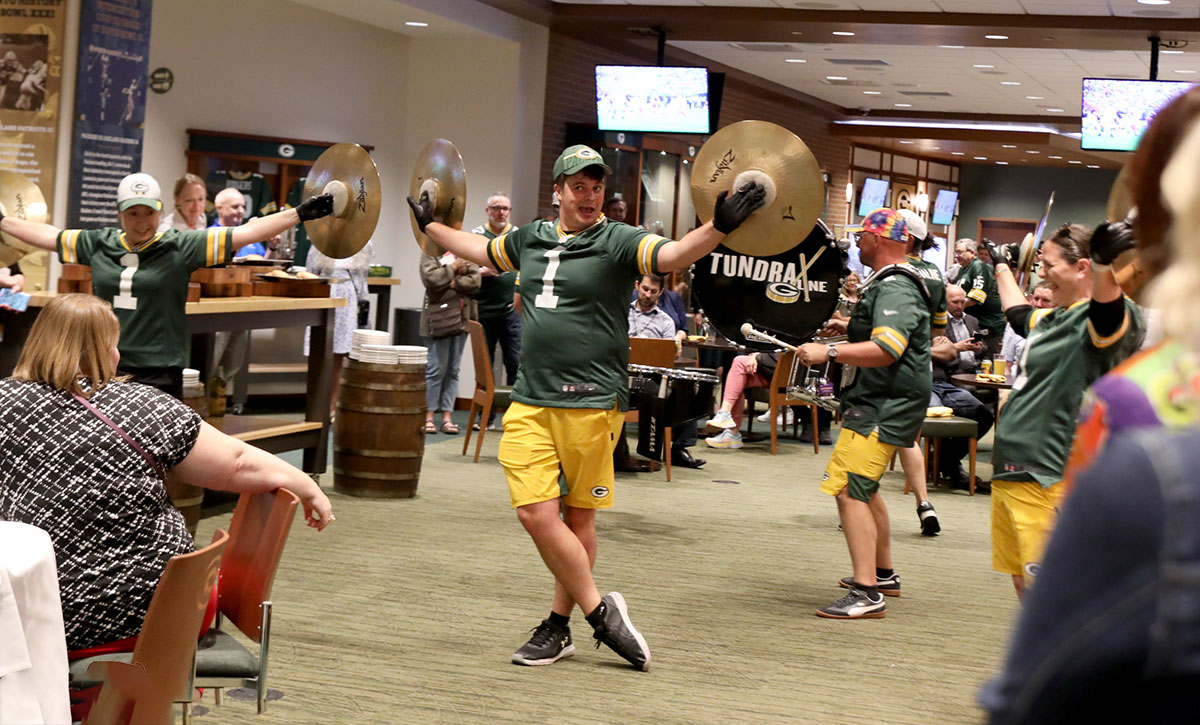
Mambers of Tundra Line, the official drumline of the Green Bay Packers, perform during the "Lawyers at Lambeau" event at the State Bar Annual Meeting & Conference.
July 3, 2024 – It wasn’t just the Bench and Bar Bash at Lambeau Field’s Champions Club, featuring the Tundra Line – the official drumline of the Green Bay Packers – or an appearance by former Packer Bill Schroeder that sparked conversation and enthusiasm at the State Bar of Wisconsin’s recent
Annual Meeting & Conference (AMC).
From
Ryan Billings’ swearing-in as the next State Bar President (starting July 1, 2024), to
toasting 150 years of women in the law, from
honoring 15 award winners to an eye-opening plenary session on artificial intelligence (AI) – there was something for everyone at this year’s AMC, including 24 breakout sessions and a lively expo hall.
More than 350 people and almost 20 legal industry vendors attended the AMC in Green Bay on June 19-21, at the KI Conference Center, including more than 30 circuit court and court of appeals judges, and four Wisconsin Supreme Court justices.
The State Bar’s Board of Governors kicked things off with its
final meeting of the fiscal year on June 19, and Billings closed the events, gaveling out until next year’s AMC, June 18-20, 2025, at the Monona Terrance in
downtown Madison.
To see photos and videos from this year’s events, visit the State Bar’s
Facebook page or the State Bar’s other social media channels –
X &
LinkedIn &
YouTube &
Instagram.
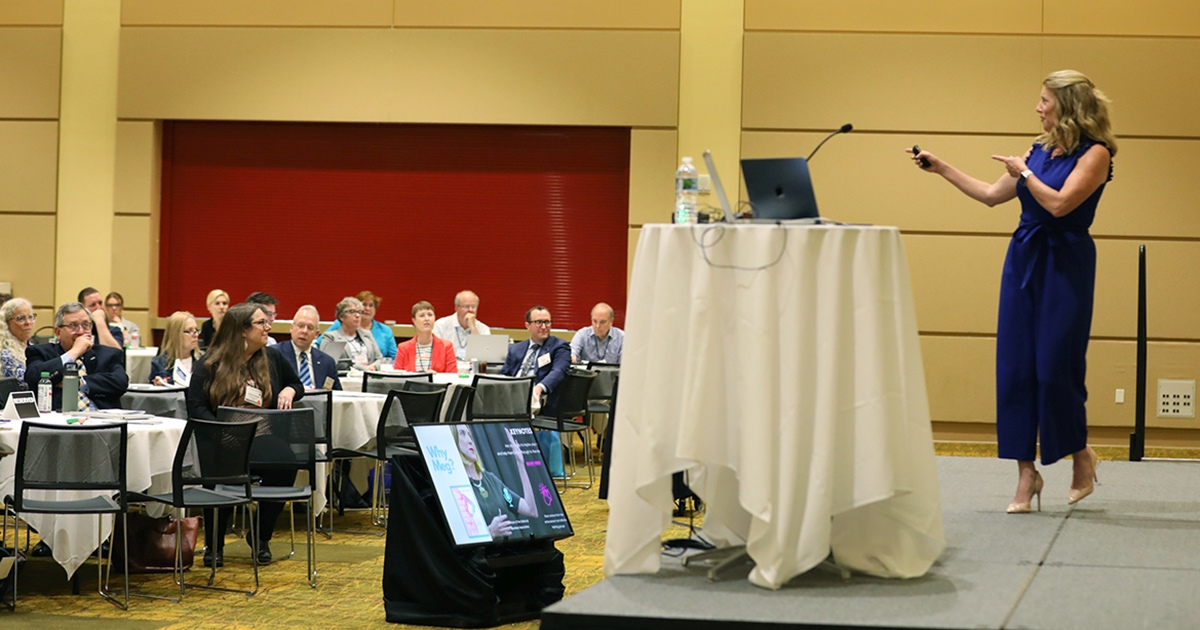
Communications Strategist Meg Bucaro gave practical tips on speaking effectively to a jury and your clients in her closing plenary session on Friday.
Benefits and Risks of Generative AI
To open the conference, Louisiana Fifth Circuit Court of Appeals Judge Scott Schlegel and Rutgers Law School Professor David Kemp led a discussion on the benefits and risks of artificial intelligence (AI), noting that generative AI such as ChatGPT is still new, but advancing rapidly. That includes rapid advancement of audio and video cloning.
Judge Schlegel chairs the Louisiana Supreme Court Technology Commission and the Advisory Council of the ABA Task Force on the Law and Artificial Intelligence.
“AI is the new shiny object,” Judge Schlegel said in a
post-presentation interview. “This is just another technological revolution within the justice system. The big takeaway is that we’ve done this before and we can do it again. Certainly, it’s different this time.”
He said AI technology has significant benefits and significant risks, but lawyers and judges should start testing it in a safe environment.
“Start learning how to use the tools,” Judge Schlegel said. “Play around with them in a setting that you can't hurt anybody. Draft a song, draft a letter … plan a trip.
“Start using it so that when it comes time to implement it in your practice or in your chambers, you have a good idea of the risks and benefits that you should be looking at.”
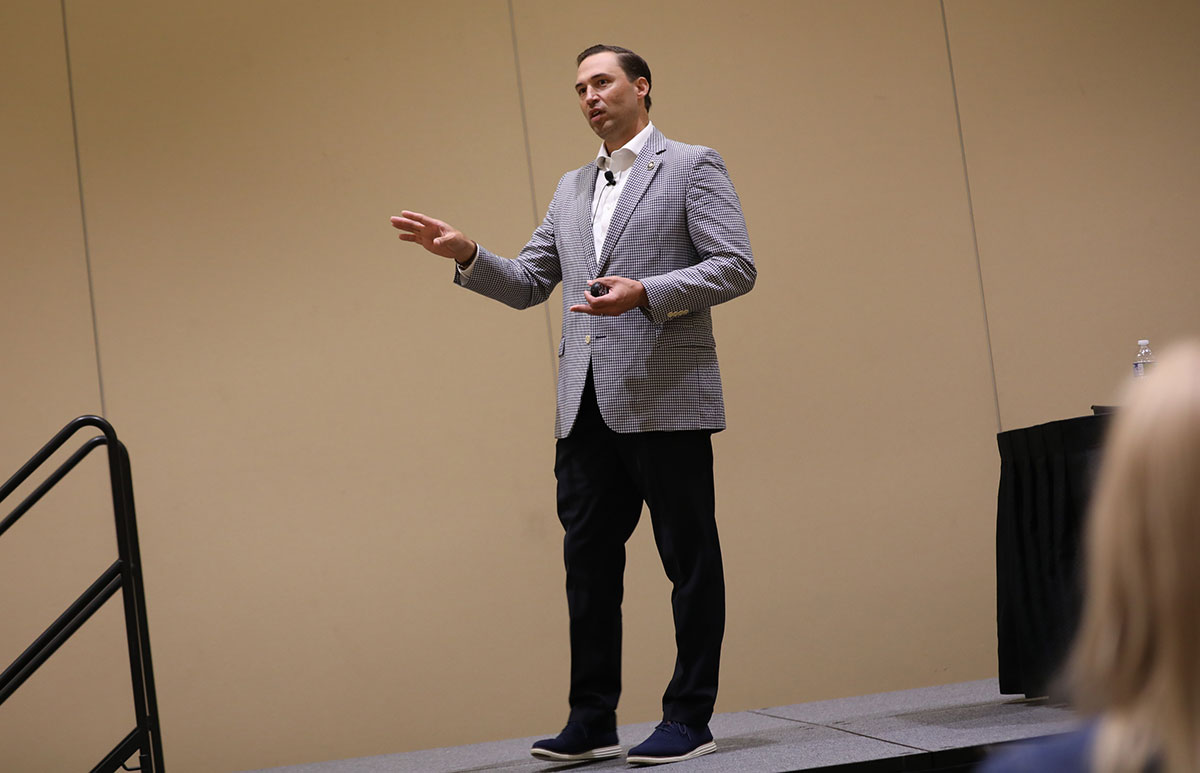
Louisiana Fifth Circuit Court of Appeals Judge Scott Schlegel, at the opening plenary on Thursday, spoke on the best uses and risks of generative AI for judges and lawyers.
Judge Schlegel said deepfake technology using generative AI can be scary to think about when photos and videos are often used as evidence in the courtroom.
“This isn’t Photoshop. We are way beyond that,” said Judge Schlegel, noting that images, videos, and voices can be easily altered and still look authentic. “The authenticity of evidence scares the heck out of me, as a judge.”
But for the past year, he has experimented with deepfake technology to showcase how it can be beneficial, especially in creating greater accessibility to the court system.
For instance,
Judge Schlegel used AI software to convert a video message from English to other languages. “The ability to convert scripts into any language using videos can greatly enhance access to justice,” he said.
Judge Schlegel said generative AI tools can also greatly improve efficiencies, such as calendar systems, email functions, search tools, and other communications.
Still, while AI tools like ChatGPT are improving, they are in the early stages and make mistakes, known as “hallucinations.” Professor Kemp noted that generative AI tools want users to keep engaging, so they will provide an answer, even if it’s incorrect.
Judge Schlegel said lawyers and judges should experiment with the tools, including their availability in legal research, but not as a decision-making function.
“One of the key things for judges and anyone using generative AI is to use it early on in the process and to exercise a significant review over what it’s doing,” Schlegel said.
“There are lots of effective uses and we’re just getting started to know what those are,” Judge Schlegel told attendees.
<iframe src="//www.youtube.com/embed/VpuWSojVQgU" width="600" height="338" frameborder="0" allowfullscreen></iframe>
Louisiana Fifth Circuit Court of Appeal Judge Scott Schlegel has some advice for his colleagues who are nervous about using AI in their courthouses.
Other Tips and Trends
Don’t talk about conflicts. “A divorce is in the works and the husband comes to your office and tells you a bunch of facts, then decides not to hire you. Then the wife calls,” said State Bar Ethics Counsel Sarah Peterson in a “Family Feud” ethics session.
“When you have to tell someone you have a conflict, you cannot say what that conflict is. You can’t even say ‘I can’t represent you because I talked to your husband.’ You just have to say ‘my ethical obligations prevent me from taking on this representation.’”
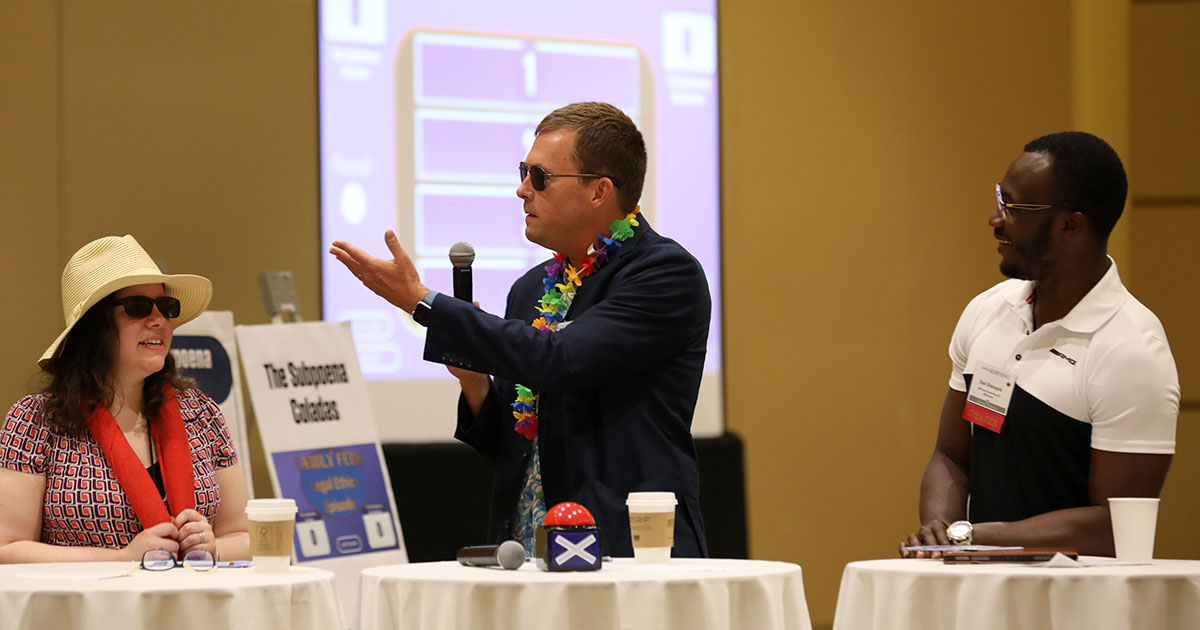
Tim Samuelson, director of the Office of Lawyer Regulation (center), makes an argument during the Friday morning "Ethics Gameshow: Family Feud." Joining his team are Milwaukee attorneys Stacie Rosenzweig (left) and Emil Ovbiagele (right).
Call the State Bar’s Ethics Hotline. State Bar President Dean Dietrich, a member of the State Bar’s Ethics Committee, noted there’s an exception to the client confidentiality rule when seeking advice on how to comply with the ethics rules.
“That’s how and why the
Ethics Hotline is allowed to do business the way they do. We encourage lawyers to be using the Ethics Hotline,” Dietrich said. “The opportunity to ask questions of Sarah Peterson and Tim Pierce, who are a wealth of information about the rules of professional conduct, can make every lawyer’s life easier.”
What about posting on a list-serv with other lawyers to get advice on ethics rule compliance? “I would be very careful,” Peterson said. “Chances are that to get that advice, you will need to disclose facts about what happened. Call us instead.”
Don’t be too proud to ask questions. “Nobody is going to expect you to know everything straight out of law school,” said Outagamie County Circuit Court Judge Yadira Rein, a panelist in “Guidance from the Bench to Young Lawyers.”
“Pick up the phone and call somebody and say I'm thinking about taking this type of case or I have these issues. What are your thoughts? People will respect you if are honest and say, ‘I'm not really sure about this.’”
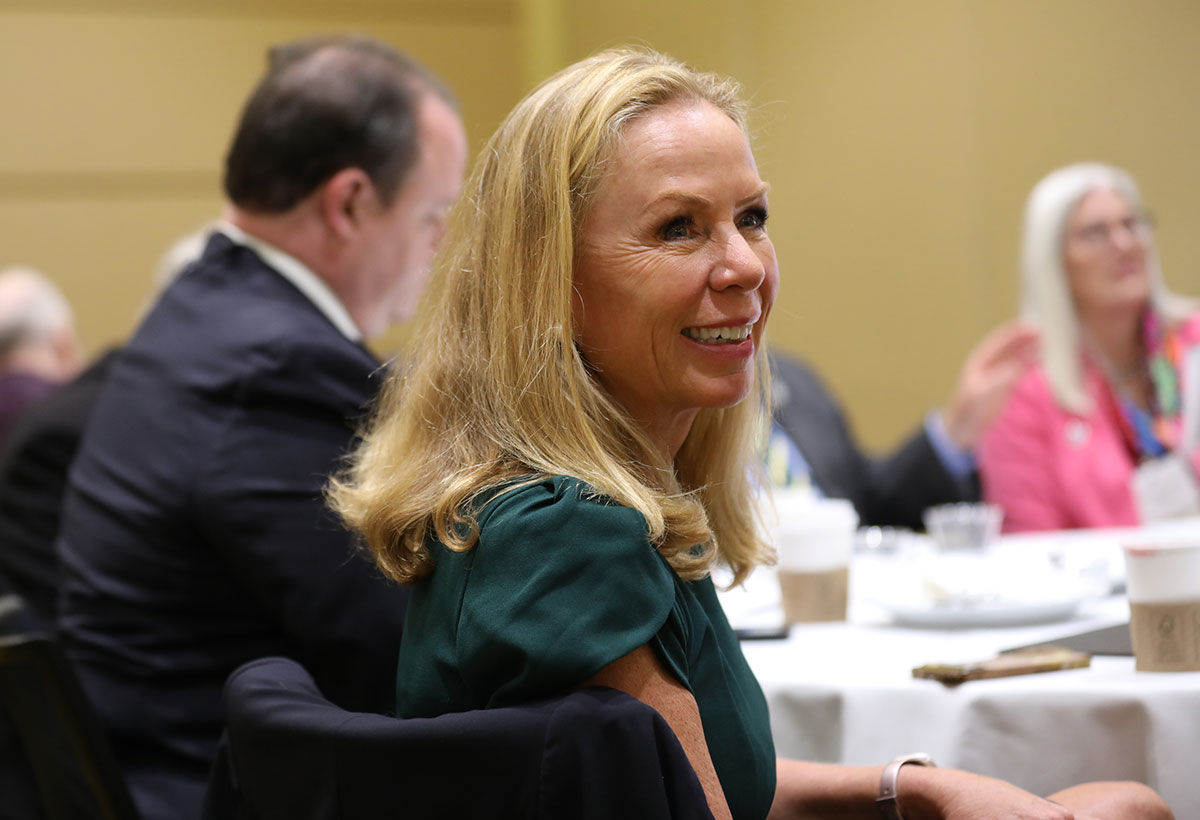
Wisconsin Supreme Court Chief Justice Annette Ziegler smiles during a discussion in the Thursday morning opening plenary on the benefits and risks of using generative AI.
Accept and give constructive criticism. Wisconsin Appeals Court Judge Thomas Hruz, also a panelist with Judge Rein, told the story of his first big case, as a young litigator. His mentor at the firm consistently redlined his brief.
In the end, the large national client complimented the final product. “Take the time to give that constructive criticism,” Judge Hruz said.
Watch and learn. “I think if you want to be a litigator, probably one of the greatest things you can do is watch and learn from experienced litigators,” said Judge Tammy Jo Hock, presiding judge for the Brown County Circuit Court, also a panelist in Guidance from the Bench to Young Lawyers.
“Then have a discussion with that litigator on why they made some of the decisions they did, some of the objections they made, or why they didn’t make an objection.”
Treat court staff with respect. “Keeping our court staff happy is important to us,” Judge Hock said. “If you treat them well, we notice.”
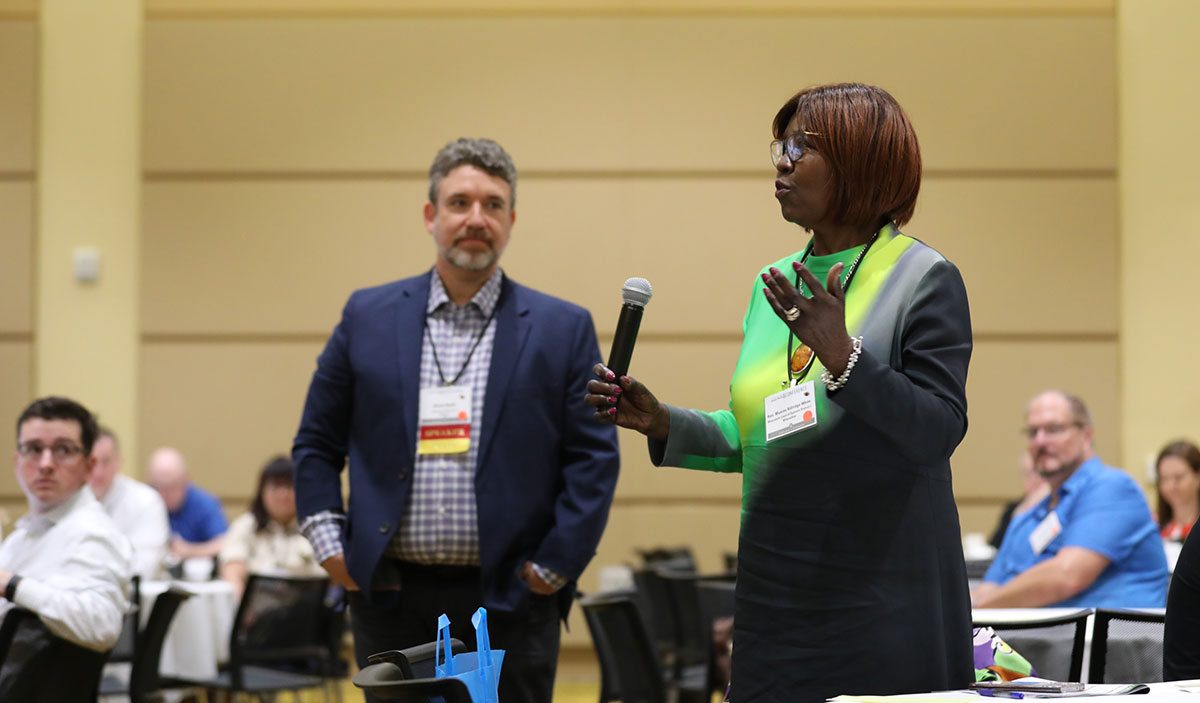
Chief Wisconsin Appeals Court Judge Maxine White (right) asks a question during the Thursday morning opening plenary on the benefits and risks of using generative AI.
Your bill is marketing. “You want the client to understand what you’ve done when they see the bill,” said Rebecca DeMarb, a panelist in a session on “What Clients Want.”
“You want to give enough details,” said DeMarb, who often hires outside counsel to assist on bankruptcy files. I like block billing. I think it tells a better story.”
No billables: It’s double-edged sword. “Yes, I don’t have billable hours, but now I’m a cost center,” said Amanda Schlitz, an in-house counsel for U.S. Bank in Minneapolis, a panelist with DeMarb who often hires outside counsel.
“I do the best I can to bring value to the bank, to keep costs down and to work with outside counsel. I very much appreciate it when outside counsel understands that I’m not getting paid to do their work. I appreciate good, seamless relationships.”
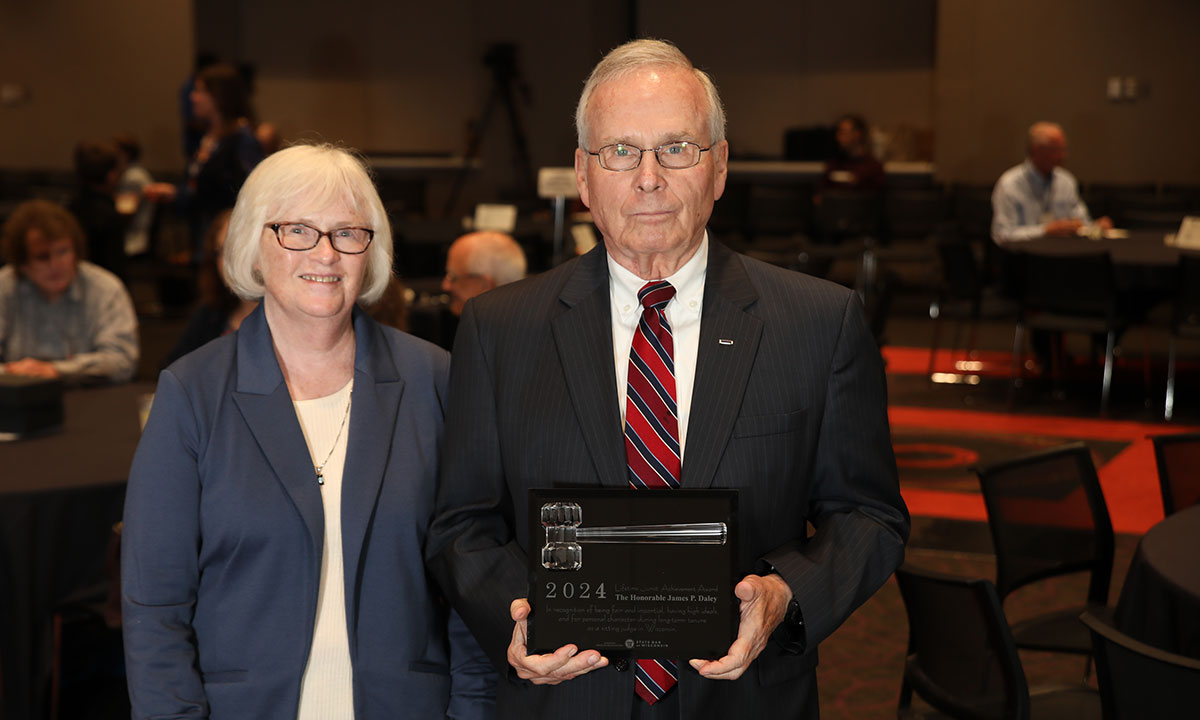
Judge James P. Daley (right), Rock County Circuit Court (retired), is the 2024 recipient of the Bench and Bar Committee's Lifetime Jurist Award. He received his award Thursday evening at the Member Recognition Celebrate. You can find more photos of the event in the album on the
State Bar of Wisconsin Facebook page.
It’s okay to argue. “The lawyers I really want to hire are the ones who are willing to argue with me, push back, and actually give me advice,” DeMarb said.
Don’t make your work my emergency. “I’ve never been the procrastinating version of a lawyer,” DeMarb said. “I’m not going to make it home for dinner tonight because I have to review other lawyers’ stuff that they could have gotten to me before today.”
150th Anniversary of Lavinia Goodell. “The number of women lawyers has grown by leaps and bounds,” said Wisconsin Supreme Court Commissioner Nancy Kopp, who helped lead an effort this year to celebrate the 150th anniversary of Lavinia Goodell’s admission to practice law in Wisconsin, the first woman to do so. But it took many decades. Now, more than half of those attending law school are women.
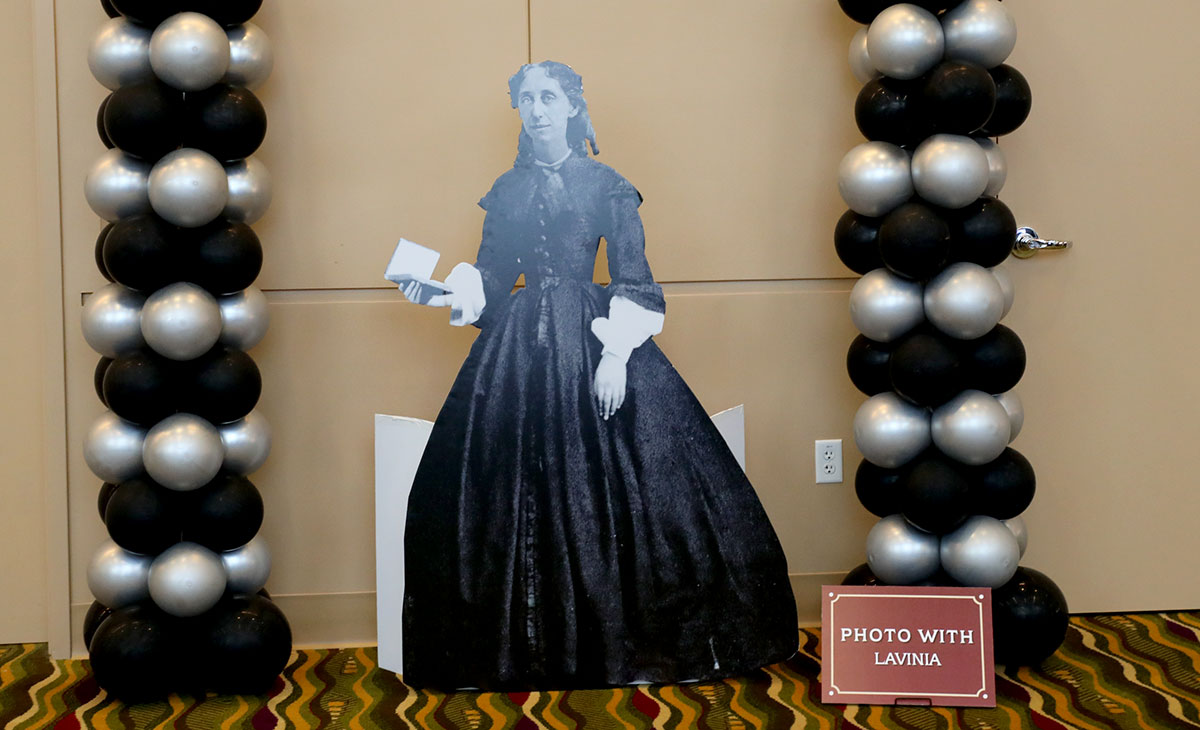
Attendees could take selfies with Lavina Goodell to celebrate the 150th anniversary of her admission to practice law in Wisconsin.
If you want peace, work for justice. “Those of us who went to law school went to law school because we believe in the justice system,” said Diane Diel, former State Bar president, panelist in a session on “Five Important Wisconsin Legal Developments Affecting Women Lawyers and the Women Lawyers Who Advanced Them.” “Lawyers are there to bring resolutions to legal problems and peace to our communities.”
Nonequal Pay. “Some men are still getting paid more than women for performing the same job despite having the same qualifications, education level, and years of experience,” according to Elizabeth Fernandez, counsel for the Wisconsin Education Association Council. Fernandez was also on the women lawyers’ panel.
Violence Against Women Act. A 2013 amendment “enabled tribes to exercise criminal jurisdiction over non-Indian offenders for the first time since
Oliphant v. Suquamish Indian Tribe (1978), where the Supreme Court held absent express Congressional authorization, tribes lack jurisdiction over all crimes committed by non-Indians,” according to Martina Gast on the women lawyers’ panel.
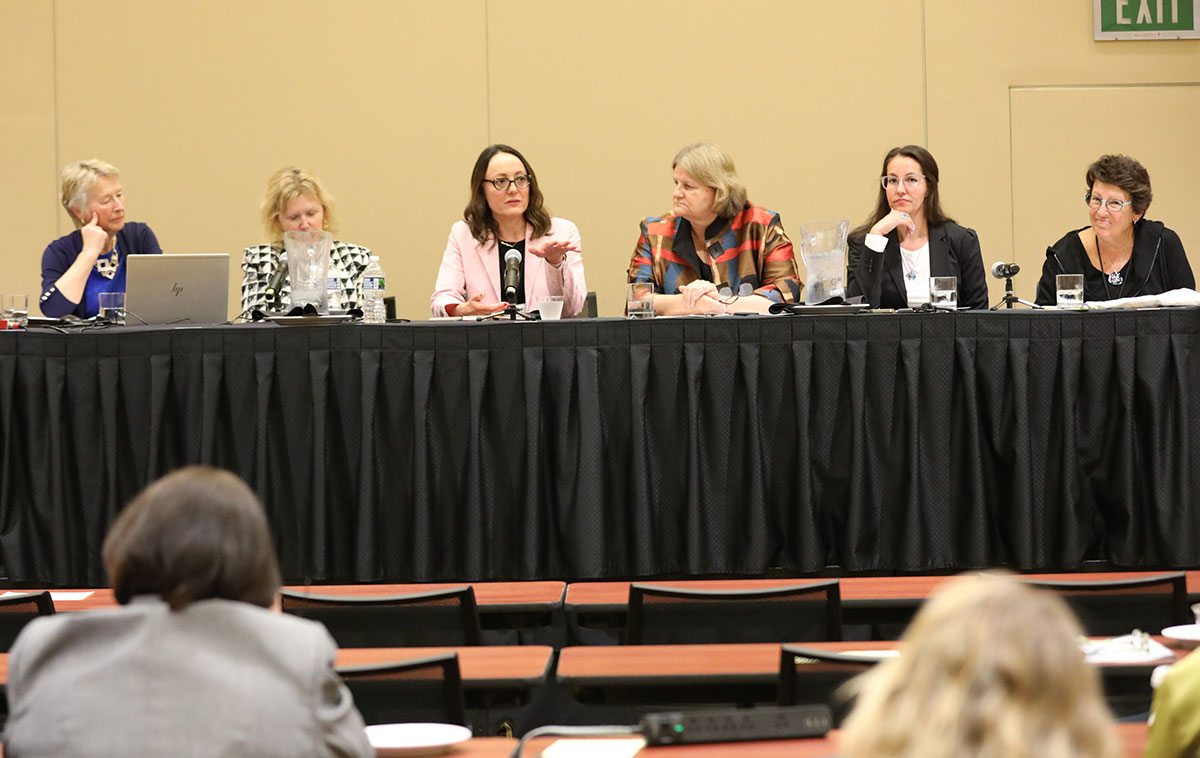
A panel on "Five Important Wisconsin Legal Developments Affecting Women Lawyers and the Women Lawyers Who Advanced Them." From left: Wisconsin Supreme Court Justice Ann Walsh Bradley, Wisconsin Supreme Court Commissioner Nancy Kopp, attorney Elizabeth Fernandez, Milwaukee County Circuit Court Judge Hannah Dugan, attorney Martina Gast, and former State Bar President Diane Diel.
How can you mitigate your own bias? “Become more aware of your unconscious bias,” said Derek Mosley,” a former municipal judge and current director of the Lubar Center at Marquette University Law School.
Mosley’s program on “Unconscious Bias,” discussed how media, advertising, and other biased messaging have been ingrained in the minds of Americans throughout history. He encouraged attendees to take the
Harvard Implicit Association Test.
“Be aware of the makeup of your social networks. Try to engage in positive interactions with people who are different than you,” he said.
Open strong. “Research says that how you open is how your presentation will follow,” said Communications Strategist Meg Bucaro in her closing plenary session, “Communicate More Effectively: Power Moves to Increase Confidence and Influence.”
“If you open strong, prepare and rehearse at least that opening, the layers on that onion of nervousness will pull away.”
Tone of voice matters. “Listening to 30-second audio clips, researchers accurately predicted which surgeons had a malpractice history,” Bucaro noted.
“The more dominant and authoritative the doctor sounded, the patient did not feel like they were being listened to. The more empathetic and warm sounding, the patient liked them. We normally don’t sue people we like.”
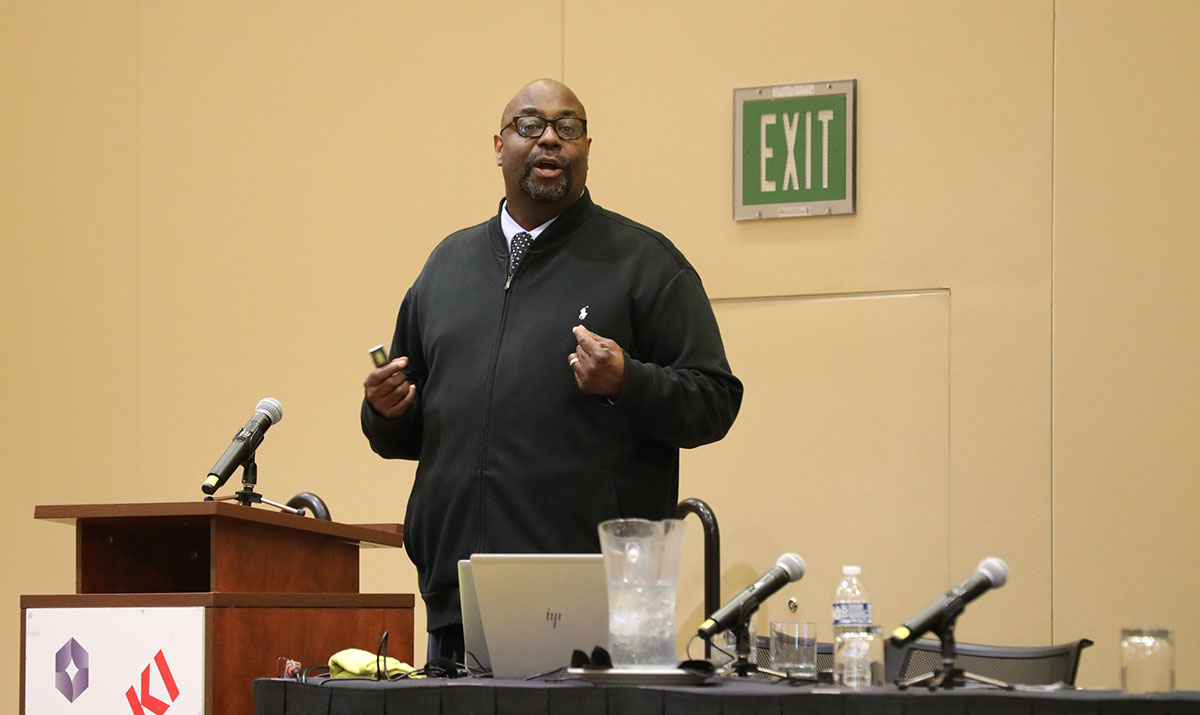
Derek Mosley, director of the Lubar Center at the Marquette University Law School, spoke on the ways unconscious bias affects behavior and your practice as a lawyer.
Special Thanks to Sponsors and Exhibitors
The AMC could not be possible without the support of sponsors and exhibitors,
listed on the AMC website. Thanks for another great year! Save the date for next year’s AMC, June 18-20, 2025, at the
Monona Terrace Community & Convention Center in
downtown Madison.
For attendees, your registration includes access to select webcast replays of AMC sessions you may have missed. Check
WisBar Marketplace for future dates.
